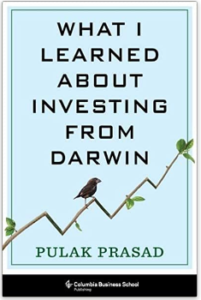I just had a fascinating exchange in a WhatsApp group with a friend who works in the Oil & Gas business. The exchange was inspired by an article he shared titled Oil companies last year made fewest discoveries since 1946 after slashing exploration budgets during pandemic (link). The article itself was inspired by a report by Rystad, a Norwegian Energy research firm, claiming that oil companies discovered only 4.9 billion barrel-equivalents of oil & gas in 2021 versus 12.5 billion in 2020. The sharp drop was caused by the absence of large individual finds, which tend to require big capital outlays and an extra dose of optimism. Interestingly, total capital spending by all companies rose slightly in 2021, but the amount devoted to new projects dropped by 27%. The cautious tone among oil executives and investors, combined with higher cost of capital for oil companies, as well as political pressure from environmentalists, has naturally resulted in less risk taking on oil exploration, as it did in previous downturns.
Every oil cycle is different and it’s a myth that history repeats itself, or even must rhyme. The oil industry we have today grew on the back of the invention of the motor vehicle in the late 1800s, and the massive growth in roadbuilding and car ownership throughout most of the 1900s. As demand for oil grew, it became necessary for oil producers to look for oil in new places, and this naturally led to the exploration of the deep oceans, where most of the largest oil production sites are today. It turns out that oil production follows Pareto’s Law just like company values. Most of the world’s oil comes from a relatively small number of sites. What this implies is that when companies stop looking for the giant wells, and especially if this trend persists for too long, there will be shortages in the future.
My friend’s point on Whatsapp was that prices are going higher because demand is not falling but supply is going down. Hard to disagree with that, but I think it’s an over-simplification to think of it that way. It’s true that prices tend to rise when demand exceeds supply, but then if the price goes up too much, it destroys demand. Demand depends largely on economic cycles, and it is not predictable from one year to the next. Supply problems are more predictable because they rely on big discoveries as well as technology. The problem with a simplified (or traditional) supply/demand framework is that supply and demand apply to different timeframes. A supply shock comes only years after a capex drought because large deepwater sites take years to develop and can’t just get shut down when demand wanes.
Anyway, my friend and I seemed to agree on most points, but then someone mentioned that oil demand will fall because of electric vehicles – and that was the comment that inspired this post. I was able to pull the data up fairly quickly on Google. Global plug-in vehicle sales nearly doubled in 2021 to just under 7 million units. That may sound bullish for EV companies like Tesla or Lucid, but there are 1.5 billion vehicles on our planet in 2022. About 500m of those are in Asia and 350m in North America. The US alone has over 20% of them. These are staggering numbers when compared with 7 million. In other words, even if the global EV population went up ten-fold over the next decade, it would not make a dent on oil consumption. This is because two thirds of global oil production is consumed in transportation, of which the light motor vehicle represents the vast majority. This article is one among many that predicts meteoric growth for electric vehicles over the next decade. Reading such articles can easily fool one into thinking that oil demand will indeed go down in time. Maybe it does, but Time has much more patience than humans. My point is that I suspect oil will go much higher, in the future, before electric vehicles bring it back into check. And even then, it won’t be the electric vehicle that does it, but demand destruction from higher oil prices.
In closing, it’s worth mentioning that the demand for renewable energy and the move away from fossil fuel consumption has a rocky history. As Daniel Yergin details beautifully in his best book, The Quest: Energy, Security, and the Remaking of the Modern World (2011), oil cycles have sabotaged the renewable growth thesis throughout history. Every time it seems like mankind has come up with a viable alternative for oil, the economics changes because oil crashes. It will seem like good news for renewables when today’s absence of large oil discoveries begins to take its toll by causing oil production to fall. If demand continues to grow, as I suspect it will, then prices will go much higher. But a much higher oil price is not good news if it destroys enough demand to cause a global recession and/or geopolitical conflicts, and the price shock ultimately induces a crash. It would just be more of the same. I know I am going in circles here, but that’s only because that’s kind of how it works.
Predicting the fate of oil is as hard as predicting interest rates. In fact, I am convinced that it is impossible, and I have quit trying a long time ago. Predicting electric vehicle growth seems easier, but still not easy. Now investing under the premise that rapid EV adoption will impact oil prices over the coming decade – that’s just folly in my humble opinion.










